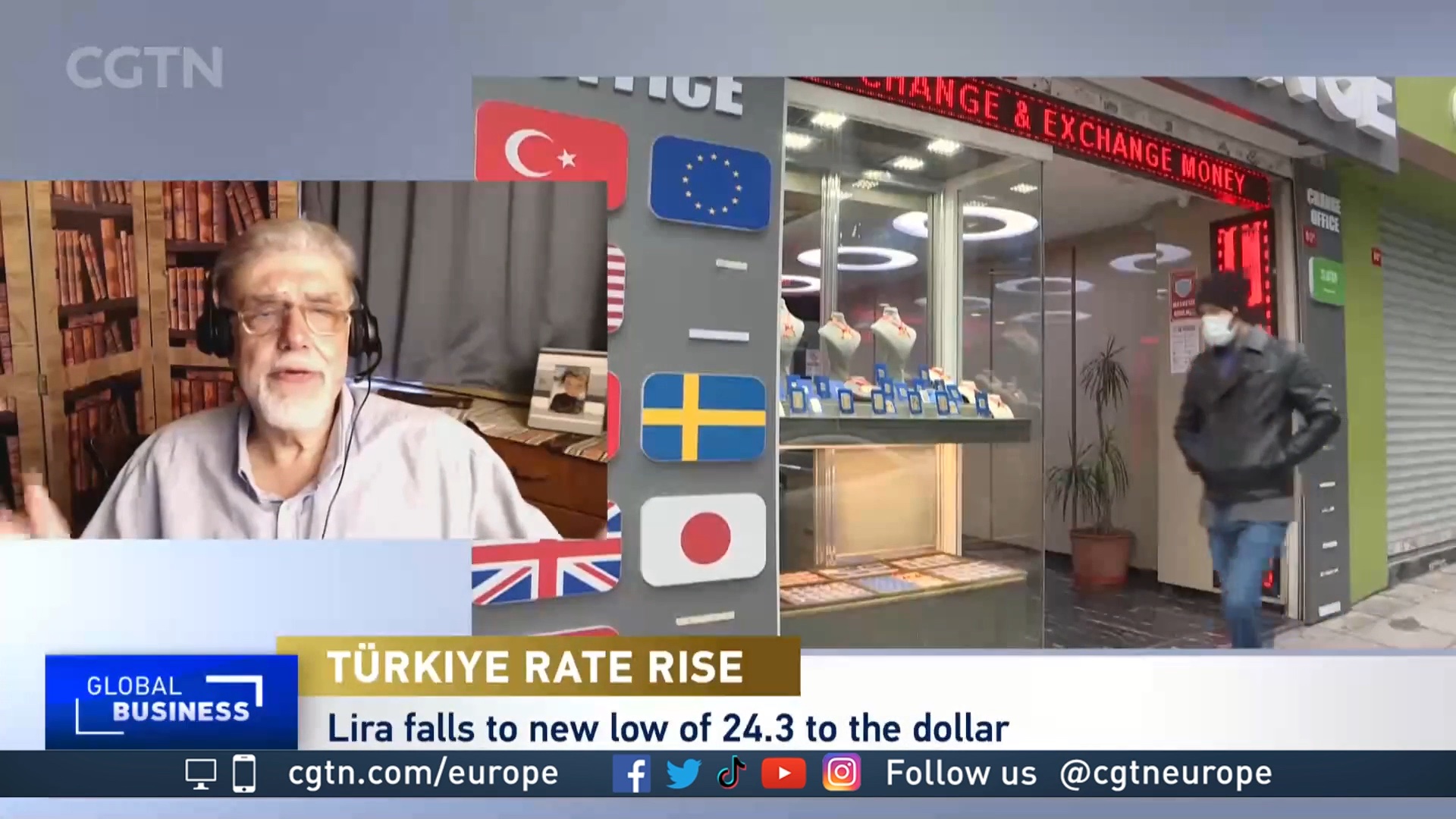03:43

Türkiye's Central Bank has almost doubled the cost of borrowing to 15 percent from 8.5, in a bid to cool runaway inflation. However, the decision, by the country's new economic policy makers, has fallen short of what many analysts had been calling for.
The Turkish lira, which has halved in value over the past two years, fell to a new low after the rate rise was announced. By mid afternoon on Thursday it was trading at over 24 to the dollar.
Monetary "tickling"
"This is not monetary tightening, it's monetary tickling," Atilla Yesilada, Türkiye analyst at GlobalSource Partners, tells CGTN. "You live in a country where headline inflation is 40 percent, trend inflation is 45 percent and accelerating and you raise the policy rate to 15 percent. Why bother?"
However, the move marks a radical turnaround in policy by President Erdogan, whose unorthodox approach to the economy has seen the cost of borrowing halved in two years, largely in a bid to boost growth and exports.
The return to conventional monetarist policies comes under the bank's new governor, its first-ever female chief Hafize Gaye Erkan. Former finance minister Mehmet Simsek, has also returned to office vowing to deliver "a rational… rules-based economy."

A worker counts Turkish lira banknotes in an exchange currency shop in Istanbul. /Francisco Seco/AP Photo
A worker counts Turkish lira banknotes in an exchange currency shop in Istanbul. /Francisco Seco/AP Photo
Their appointments had signaled to investors that Erdogan may be ready to backtrack on his controversial approach to interest rates, with the cost of living figuring so highly in voters’ concerns ahead of May's polls.
In a statement the central bank says it acted "in order to establish the disinflation course as soon as possible."
But many Wall Street banks had been calling for bolder action to cool spiraling prices. Goldman Sachs had appealed for headline borrowing costs to rise to 40 percent, more or less on par with the official CPI inflation figure itself.
"Set parameters"
Yesilada claims the 6.5 percent rise has called into question the credibility of Erdogan's new economic team just as it takes power, while also failing to tempt back much needed international investment to Türkiye.
"This is badly needed to replenish the FX reserves of the central bank," Yesilada says, pointing to official figures that show net forex reserves at the Central Bank fell below zero for the first time in 21 years last month, as billions were spent propping up the value of the lira ahead of the election.
Some policymakers fear that Erdogan is unwilling to ease his influence over the Central Bank in the wake of his recent success at the polls.
"(Bank governor) Erkan has limited room for maneuver in restoring orthodoxy in monetary policy," says Piotr Matys, senior FX analyst at InTouch Capital Markets.
Yesilada claims Erdogan has set down specific limits on flexibility in interest rates to his new economic chiefs.
"They are free to move within those parameters," he tells CGTN. "The problem is those set parameters don't go any way to solving Türkiye's chronic and very entrenched inflation and current account problems."

Subscribe to Storyboard: A weekly newsletter bringing you the best of CGTN every Friday